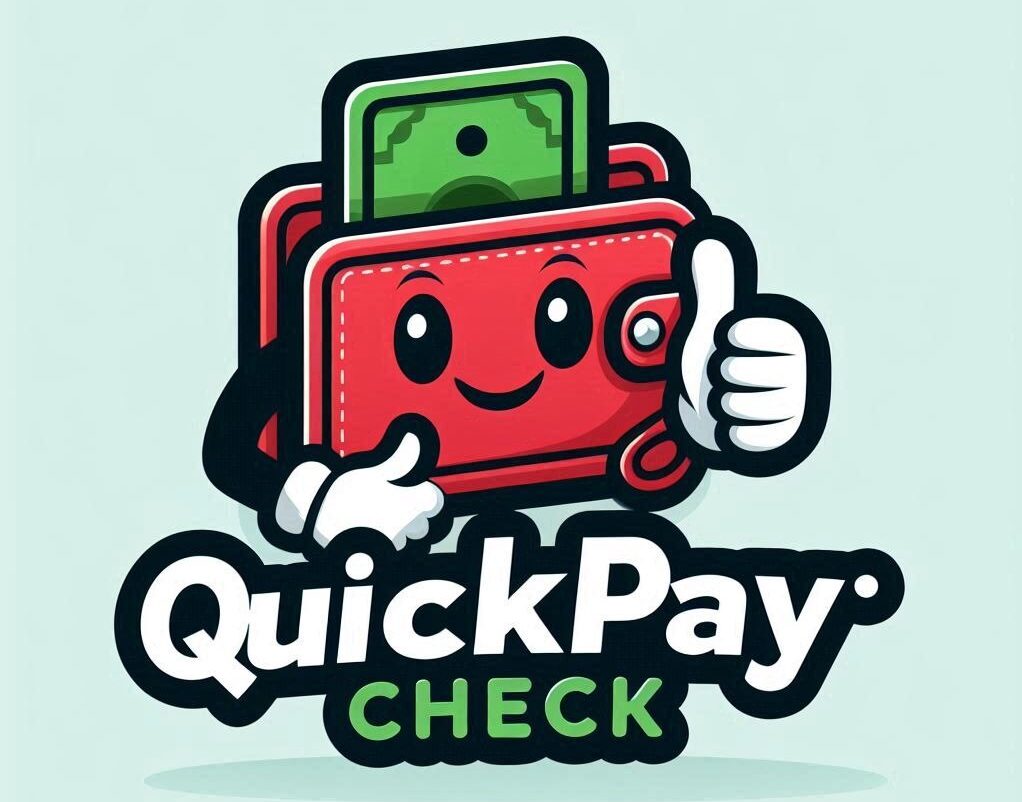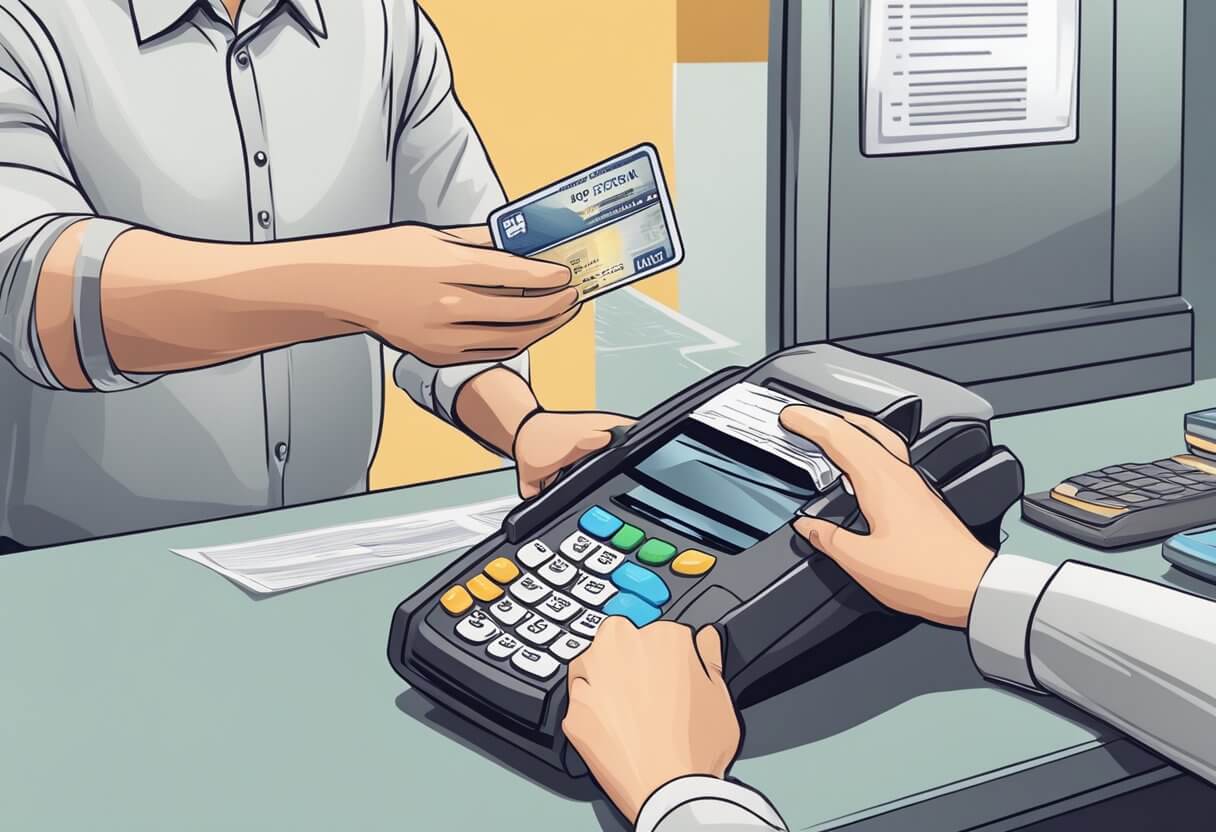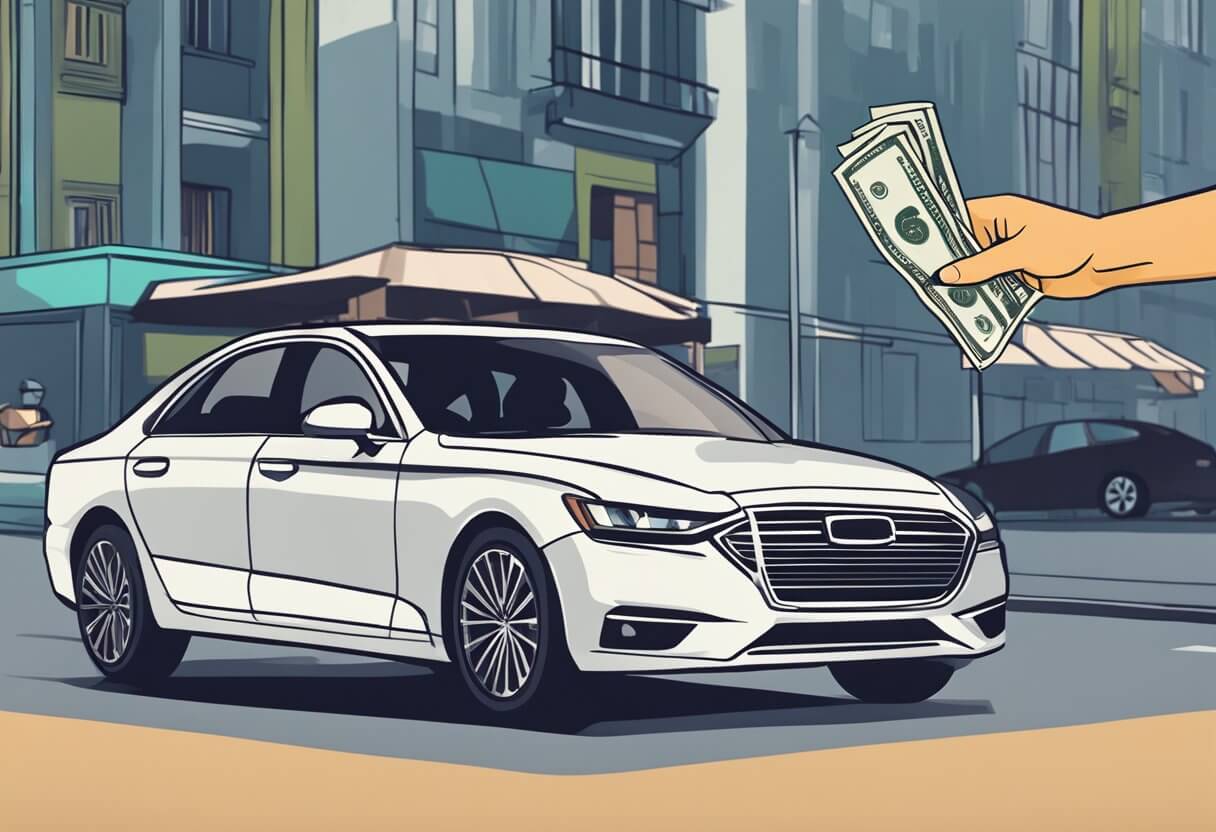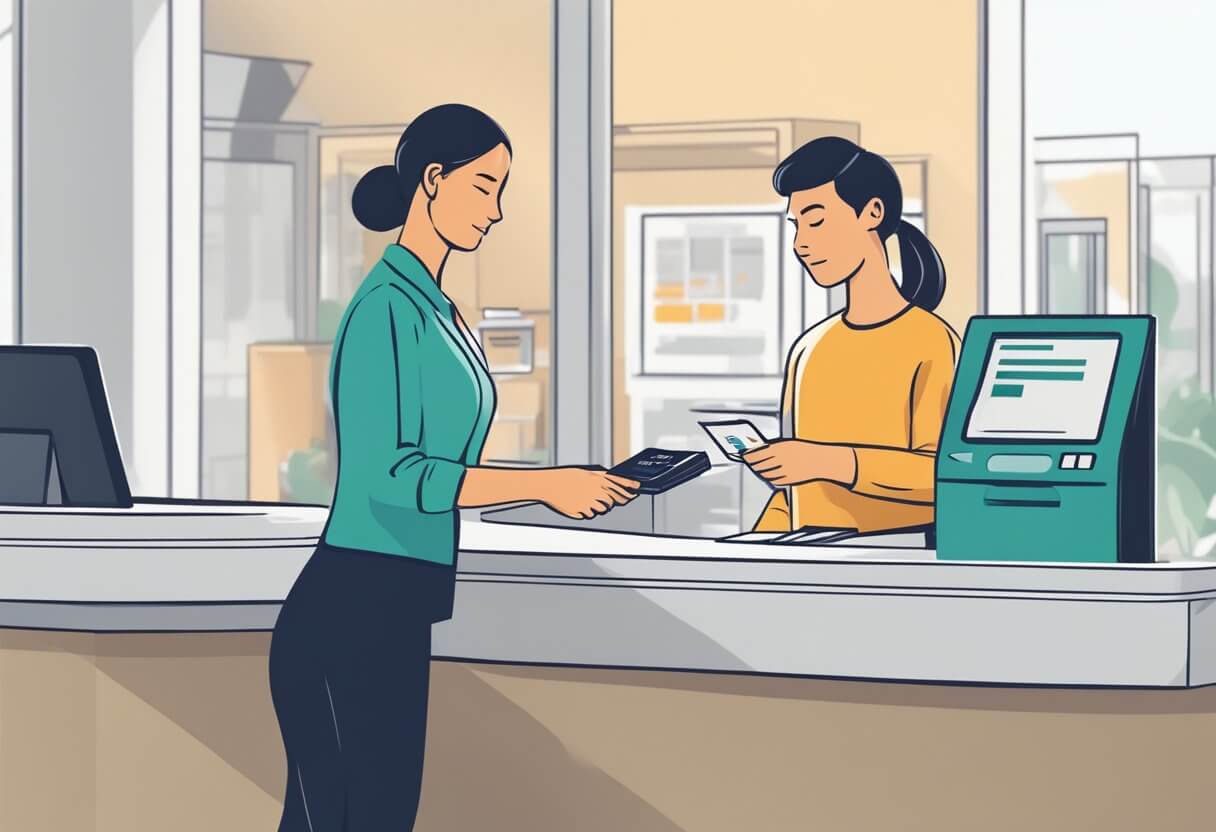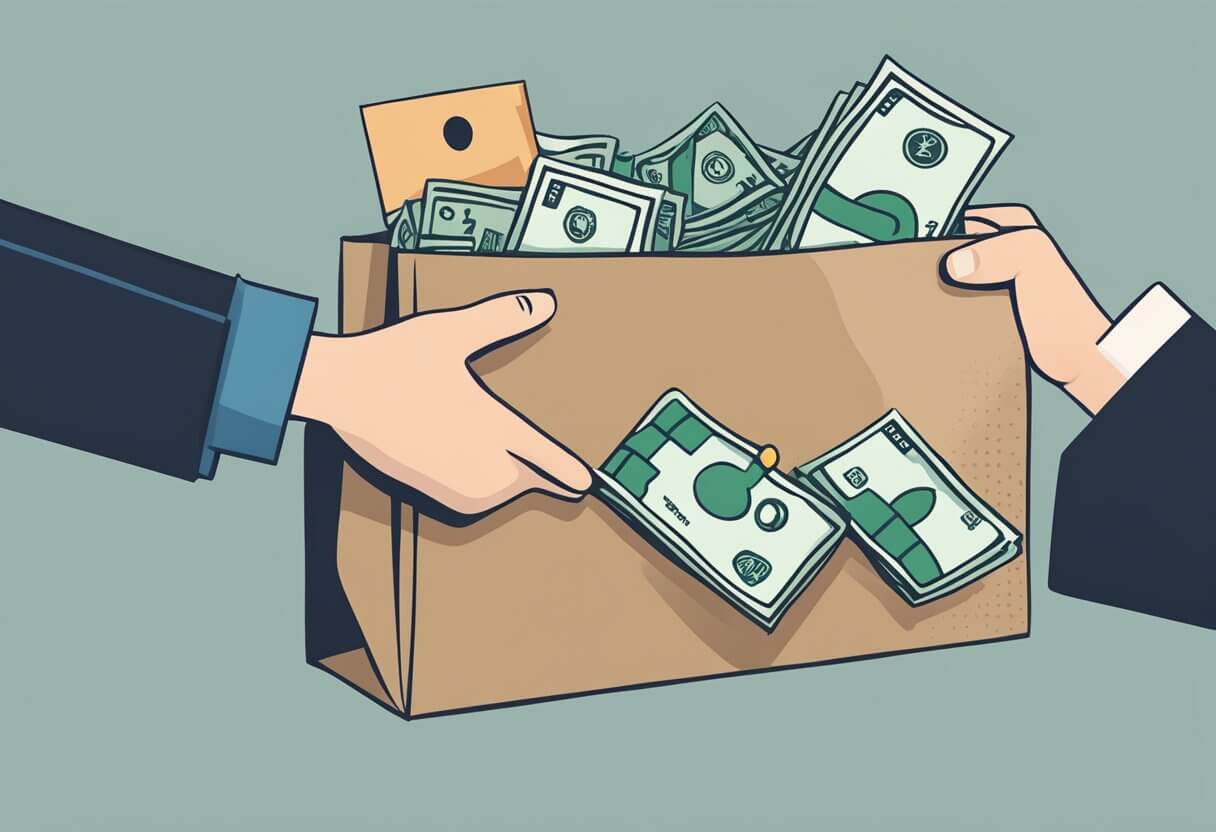It’s that dreaded time of year again – tax season. As you gather documents and input numbers into your favorite tax software, you add up the damage and realize you owe the IRS a pretty hefty sum this year.
Can you break out the plastic to pay the taxman? Or should you stick to old reliable – your checking account?
The short answer is yes, you can pay taxes with a credit card in many situations. However, it doesn’t always make good financial sense to do so. Charging your taxes can lead to reward bonuses and perks, provide financing at 0%, and bring simplicity. But you also have to weigh fees, credit impacts, and the risk of getting stuck with high interest rates.
This in-depth guide will cover everything you need to know about paying taxes with credit cards. We’ll discuss:
- How paying taxes with a credit card works
- Situations when it pays off financially
- Potential risks and downsides
- The best credit cards to maximize value
- Key considerations to weigh the decision
Let’s dive in!
How Do Tax Payments With a Credit Card Work?
First, let’s clear up a common misconception – the IRS does not take tax payments directly from credit cards. Why not? Credit card processing fees and rewards would end up costing the government serious money in lost revenue.
Instead, the IRS authorizes third-party processors to facilitate credit card tax payments. These processors collect your card details, charge you the amount owed plus an additional convenience fee, then pass the payment to the IRS.
There are three main processors available for paying federal taxes with plastic:
- payUSAtax –Credit card 1.85% fee or 2.85% Debit card fee
- Pay1040 – personal debit card or Consumer 2.85% or 1.87% fee, and 1.85% for credit card.
- ACI Payments – Credit card 1.98% fee or2.20% debit card fee
The fees pay for processing costs and the companies’ profit. So you’ll incur these charges when paying federal taxes via credit card. Some states also allow tax payments by cards through official processors.
In addition, if you use DIY tax software like TurboTax or H&R Block to file and want to pay your tax bill in the same step, expect even higher convenience fees around 2.5%.
So paying the IRS through plastic isn’t free. This is an important consideration when deciding whether to pay taxes with a credit card (more on that later).
When Does Paying Taxes With a Credit Card Make Financial Sense?
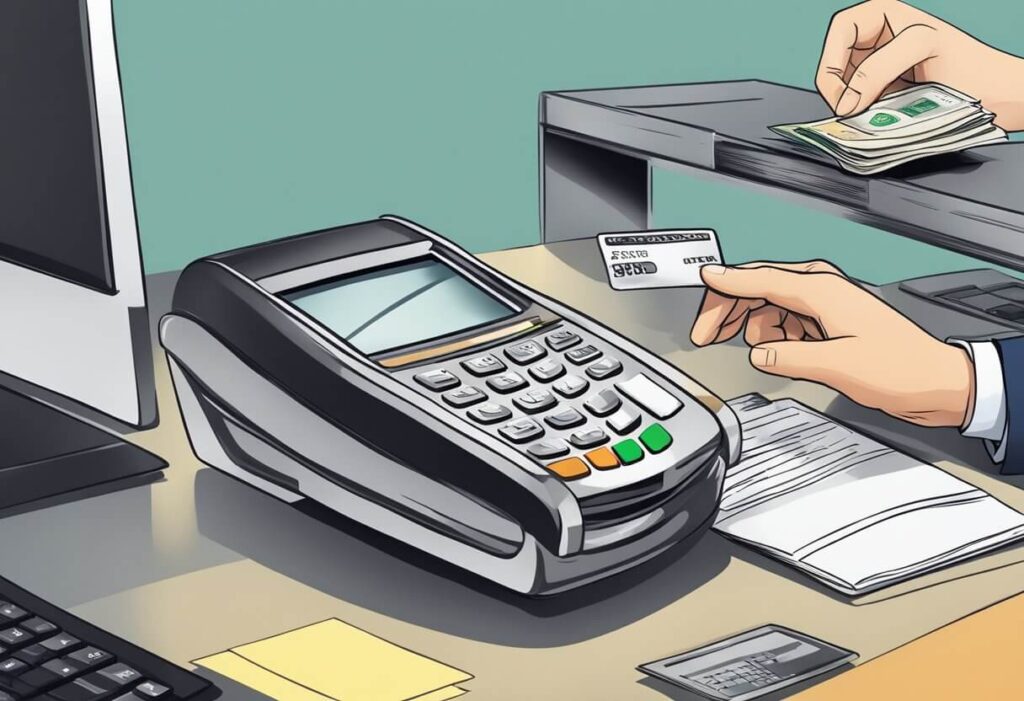
Forking over 1.85% to 2% in fees just to pay taxes with a credit card seems silly. Why throw money away unnecessarily?
You’re right to be skeptical. Under most everyday circumstances, charging taxes to a card doesn’t offer enough financial upside.
However, there are certain situations where paying taxes with plastic provides value despite the fees.
Earning Lucrative Sign-Up Bonuses
One of the best incentives for charging taxes to a credit card is to unlock a juicy new card welcome bonus.
Premium travel rewards cards often offer huge bonuses – some worth $1,000 or more! But the catch is you need to spend a large amount of money within months of opening the account to qualify.
For example, the Chase Sapphire Preferred card provides 60,000 bonus points after you spend $4,000 on purchases in the first 3 months. 60k points are redeemable for $750 in travel booked through Chase!
Many consumers don’t spend enough organically to meet hefty minimums spends. This is where tax payments come to the rescue!
By putting a large tax bill on a new rewards credit card, you can easily hit the spending requirements to grab the bonus. Just make sure to have a plan to pay off the balance within months.
Check out our list of the best credit card bonuses if this strategy appeals to you.
Hitting Annual Threshold Bonuses
Another instance where eating credit card tax fees can pay dividends is when you’re close to an annual cardholder spending threshold bonus.
Issuers offer tiered rewards and perks based on how much you spend on their card per calendar year.
For example, Hilton Honors American Express Card offers a free weekend night certificate if you spend $15,000 or more each account year. Some World of Hyatt Credit Card perks also have annual spending requirements.
If your tax payment gets you over the reward milestone, the value you get likely outweighs the 2% or less fee.
Getting Interest-Free Financing
Perhaps the taxes you owe exceed what’s currently in your bank account. Rather than draining savings or panicking, charging taxes to a 0% APR credit card can provide interest-free financing.
The Citi Simplicity® Card provides 0% APR for a full 12-21 months on balance transfers and purchases. So with some cards, you could pay off a large tax bill over nearly two years without accumulating costly interest.
Just ensure you pay off the entire balance before the 0% introductory offer period expires. The regular variable rate will kick in afterwards if a balance remains.
Using promotional financing isn’t the wisest approach if avoidable since tax delays can lead to interest headaches. But occasionally it makes sense as a last resort option.
How Does Paying Taxes With Credit Cards Impact Your Credit?
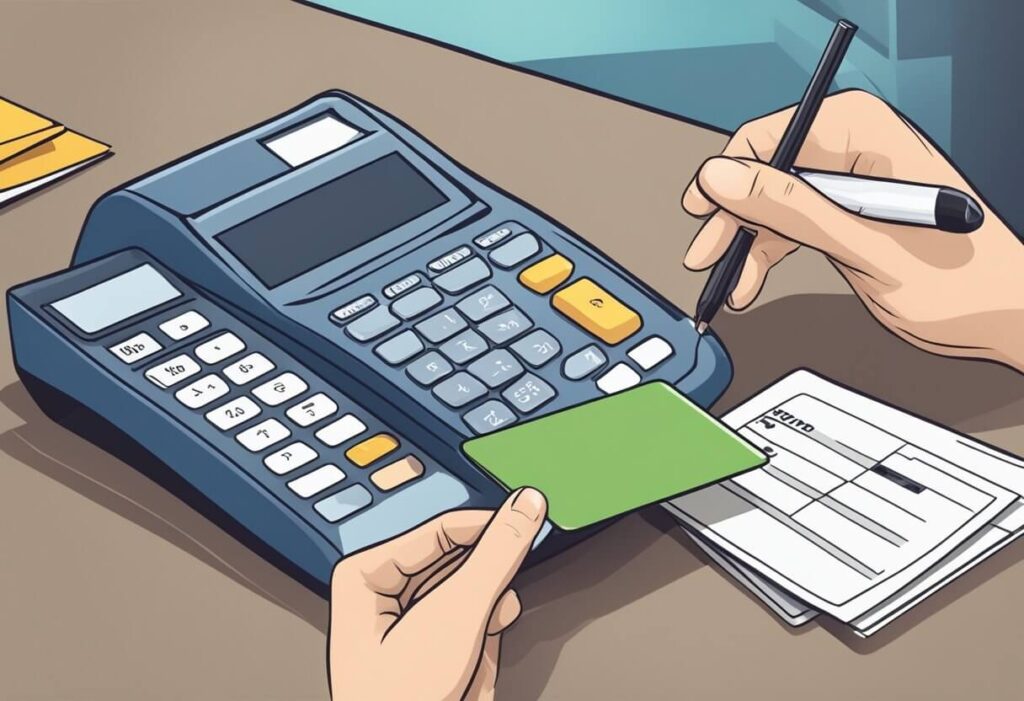
While offering some advantages, charging taxes with credit cards can also negatively influence your credit score. Here are two key ways:
Increased Credit Utilization
Adding a large tax payment to your credit card can surge your credit utilization – the percentage of total available credit you’re using.
Credit scoring models factor in your credit utilization ratio when calculating your scores because high balances hint at risk.
Try to keep overall utilization below 30%, and below 10% on individual cards for ideal scores. A big one-time tax payment could skew these percentages.
The good news is credit utilization impacts are short-term. As you pay down balances, your ratio decreases and your scores rebound quickly.
Hard Inquiries When Opening New Cards
To grab lucrative bonuses, you may apply for a new credit card account specifically to charge taxes. However, each credit card application triggers a hard inquiry on your credit file.
Too many hard credit checks in a short timeframe can indicate higher risk to lenders and cause minor temporary dings to your scores.
Overall, paying taxes with credit likely won’t devastate your credit if managed prudently. Just be aware utilization changes and hard inquiries may impact it slightly.
The Best Credit Cards for Paying Taxes
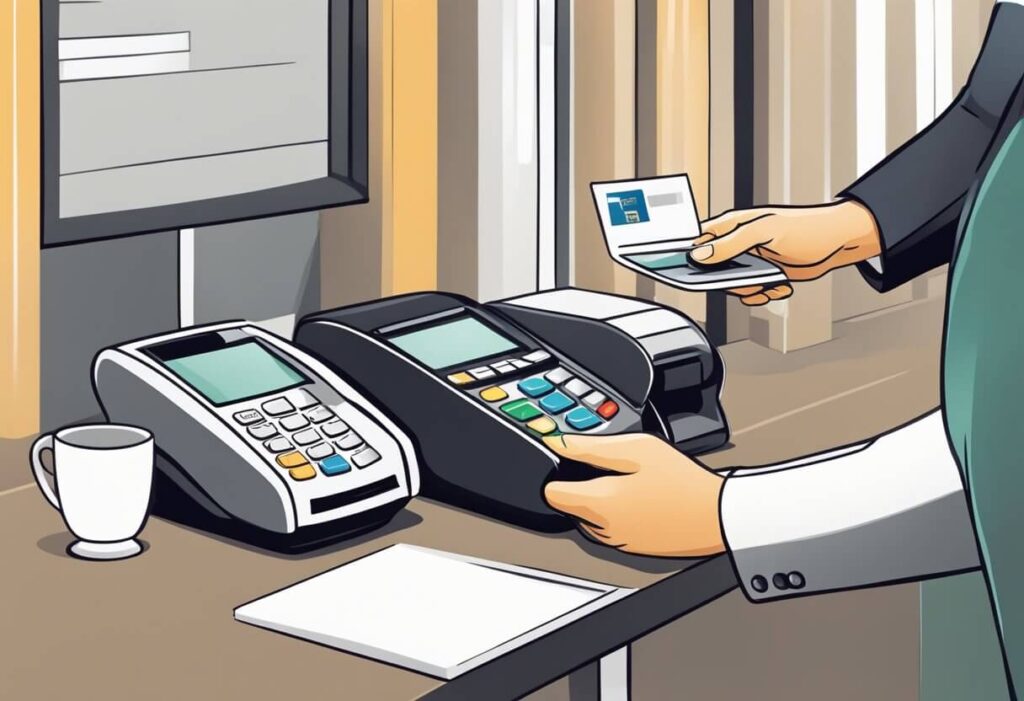
Clearly there are both pros and cons to funding an IRS payment with plastic. To maximize perks and value if you decide to pay taxes via credit card, be strategic about which card(s) you use.
Here are some top options for tax payments:
Straight Cash Back Cards
The Citi Double Cash® Card makes a practical choice for paying taxes with a card. It earns an unlimited 2% back – 1% when you buy, 1% when you pay your statement. This allows you to offset credit card tax processing fees and earn a little extra.
Downside? No big welcome bonus. But solid, reliable cash rewards.
Cards With Huge Sign-Up Bonuses
If your aim is to grab a major bonus, look at premium travel rewards cards requiring hefty spending.
For example, the Chase Sapphire Preferred® Card offers 60,000 bonus points (worth $750 in travel redemptions) when you spend $4,000 within 3 months of opening your account. Knock out taxes to meet the minimum spend quicker!
Be mindful that these cards have high regular annual fees, so factor that in.
0% Introductory APR Cards
Cards like the Citi Simplicity® Card provide 12-21 months of 0% intro APR on purchases and/or balance transfers. This allows you to pay down your tax balance over a year without accumulating costly credit card interest.
Just ensure you pay off the full amount before the 0% rate expires to dodge high variable APRs afterwards!
Review our list of the best 0% APR credit cards to explore your options.
Key Considerations – Should YOU Pay Taxes With a Credit Card?
As you weigh whether to pay taxes with credit cards, keep these essential questions in mind:
- Do you have a solid plan to pay off balances quickly? The last thing you want is a lingering tax balance racking up interest at 20%+ APR! Prioritize paying off cards in full each month.
- Does the value of rewards or perks outweigh fee costs? Run some quick calculations. For sign-up bonuses, ensure you come out ahead after accounting for processing fees. Consider your unique finances.
- Can you handle hard credit inquiries or utilization changes? Understand impacts to your credit file and have a plan to rebuild scores if needed.
- Are you pursuing short term financing as a last resort? Paying taxes via credit card to buy time isn’t wise financially unless you’ve exhausted all other options.
Evaluate your specific situation carefully based on these key considerations before paying taxes with plastic.
The Bottom Line – Is Paying Taxes With a Credit Card Worth It?
At the end of the day, should you break out a credit card to satisfy the hungry tax collector?
In limited cases, yes! When leveraged strategically, credit card tax payments can unlock huge bonuses beyond the fees, provide promotional financing rates, and simplify the payment process.
But much of the time, you’ll come out behind by paying taxes with plastic due to high fees and interest costs. Plus, taxes charged to a card likely won’t earn you enough rewards to make it worthwhile unless pursuing a valuable sign-up bonus.
If you aren’t earning major perks or utilizing a 0% APR intro offer, stick to no-fee payment methods like linked bank accounts.
The decision depends greatly on your personal financial situation – from access to funds or promotions to credit standing and more. Carefully assess whether potential credit card rewards outweigh drawbacks before paying the IRS via card.
Whichever route you choose, make paying taxes effortless by preparing early, exploring payment plans, and filing accurately using trusted DIY software or a tax professional. Here’s wishing you minimal financial pain this tax time around!
